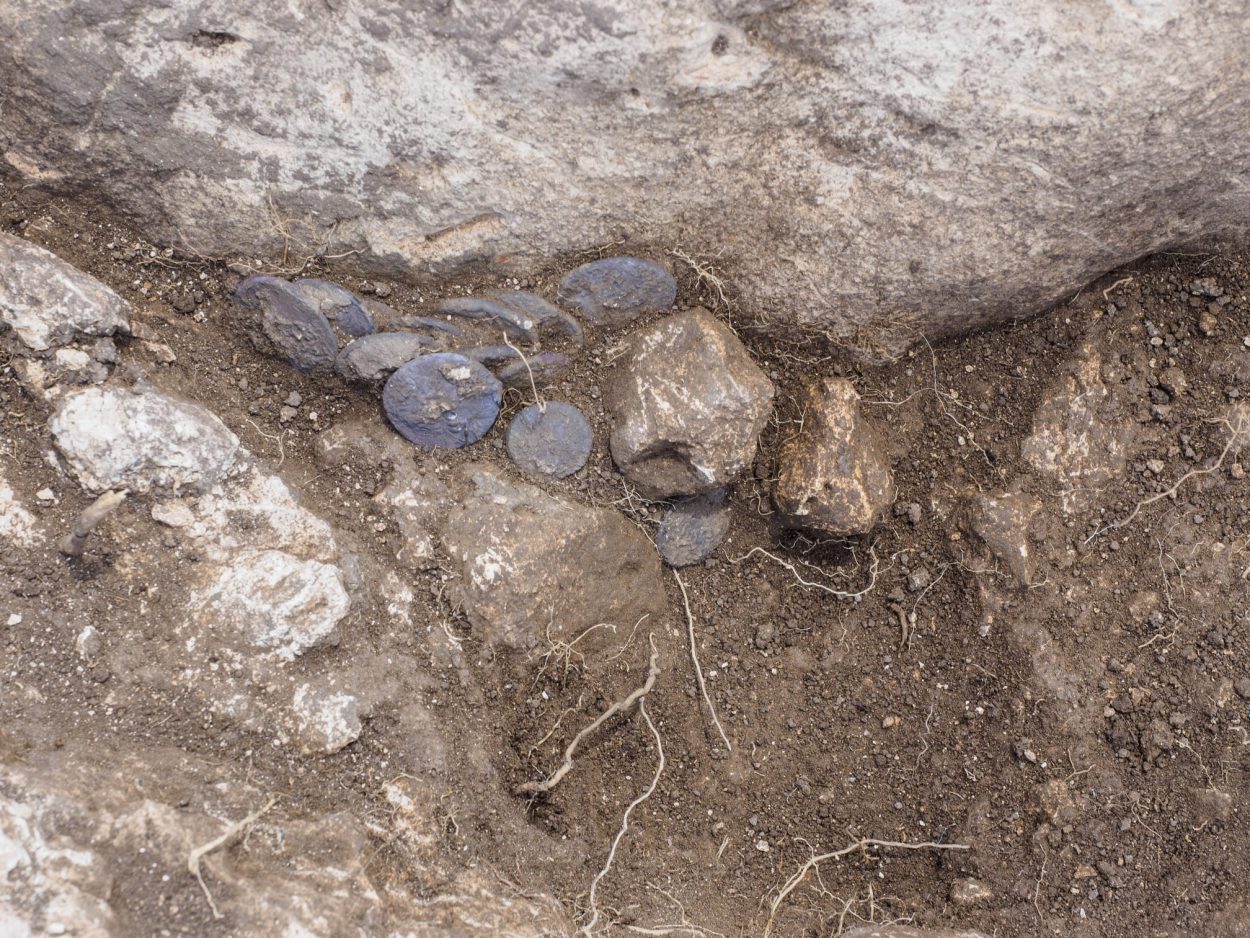Archaeologists from the Israel Antiques Authority (IAA) have excavated a hoard of silver coins from the Hasmonaean period in Modiin-Maccabim-Reut, Israel.
The researchers were excavating an agricultural estate, where they discovered a rock crevice containing the concealed hoard consisting of shekel and half-shekel silver coins (tetradrachms and didrachms).
The coins, which were minted in ancient Tyre in present-day Lebanon depict king Antiochus VII, also known as Antiochus the Pious, who ruled the Hellenistic Seleucid Empire – or they may depict his brother Demetrius II.
Avraham Tendler of the Israel Antiquities Authority said: “The cache is compelling evidence that the owners of the estate saved income for months, eventually leaving the house for some unknown reason. They collected the money in hopes to come back and collect it, but unfortunately never returned. It is exciting to think that the coin hoard was waiting here for more than 2,000 years until we exposed it”.

The team also discovered many bronze coins minted by Hasmonean rulers that mentions the names; John, Judah, Jonathan, and Matthias – and their title as High Priest and head of the Jewish community.
The discovery of coins in situ stamped with the date “Year Two” of the revolt and the slogan “Freedom of Zion” suggests that the inhabitants of the estate were supporters and possibly participants in the first Jewish Revolt against the Romans in AD 66”.
Avraham Tendler said: “During the excavation, we can see that just before the uprising the estate inhabitants filled up rooms near the perimeter of the building with large stones to create a fortified barrier. In addition, we discovered hiding caves hewn into the bedrock beneath the floors. These complexes were interconnected through a series of tunnels, water cisterns, storage pits, and hidden rooms. In one of the adjacent excavation areas, an impressive miqwe was exposed – within an opening inside leading to an extensive hiding complex containing numerous artifacts dating to the Bar Kokhba Revolt”.
Header Image Credit : Assaf Peretz – Israel Antiquities Authority





